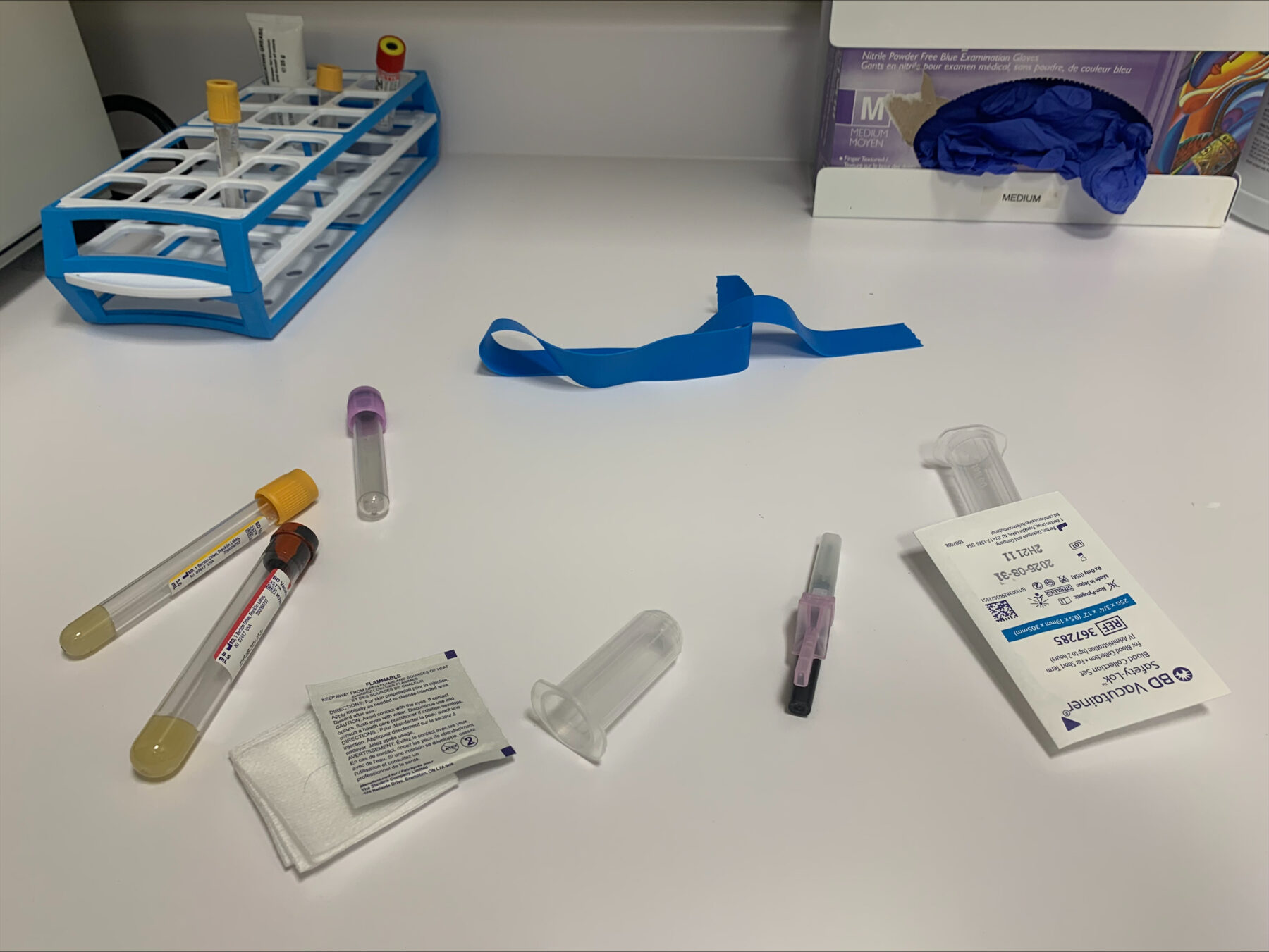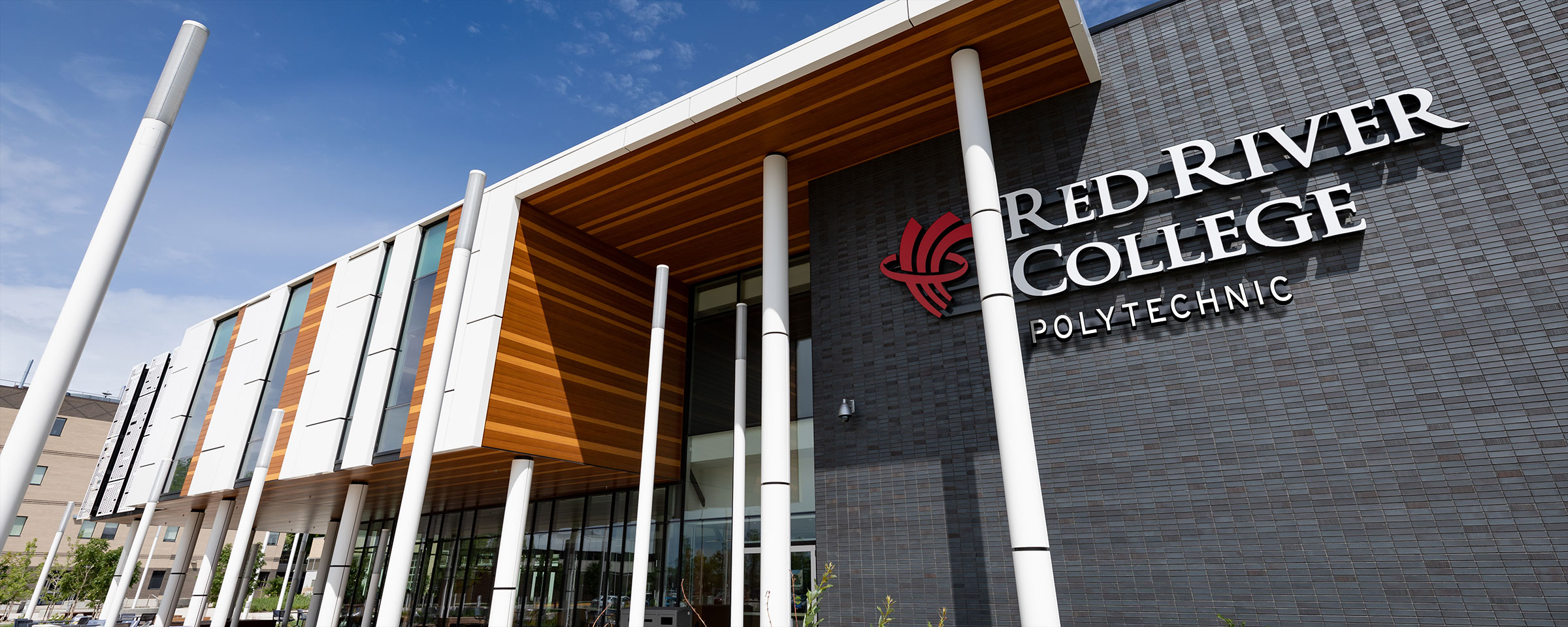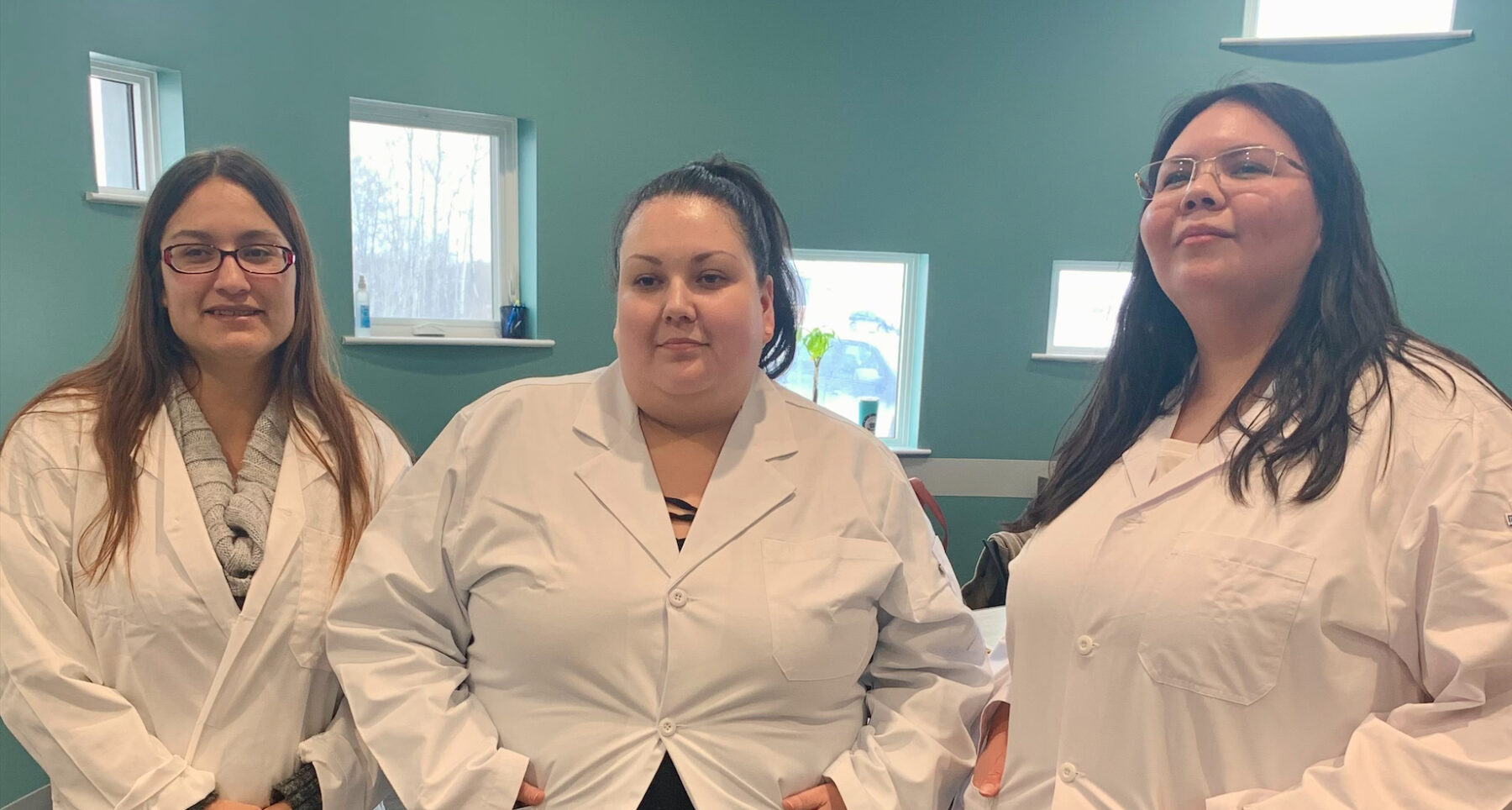RRC Polytech provides bloodwork training to enhance healthcare services for Lake Manitoba First Nation
RRC Polytech has partnered with the Southern Chiefs’ Organization (SCO)’s Health Transformation Department and provincial and regional health authorities to help bring more comprehensive health services to the citizens of Lake Manitoba First Nation. As a result, medical laboratory services will soon be available in the Nation for the first time.
“RRC Polytech is committed to building relationships that remove barriers for Indigenous learners by working collaboratively to identify the needs of students and communities, and delivering customized training solutions that allow learners to pursue their studies close to home,” said Jamie Wilson, RRC Polytech’s Vice President, Indigenous Strategy, Research and Business Development. “We look forward to working together with these and other potential partners to enhance and increase access to healthcare services and continuing to empower all communities through education.”
Three members of the Lake Manitoba First Nation started an in-community phlebotomy training program in January. This specialized, community-focused training provided by RRC Polytech’s Corporate Solutions team uses a blend of online, in-class lab and clinical learning experiences to teach students the skills and knowledge necessary to collect blood specimens from patients safely and effectively.
“I had never done online classes, so it was a little scary at first. But our instructor (Brittney Bragnalo) is very supportive, she breaks it all down so you can understand things,” said student, Lesley Missyabit. “Once I got used to the video-calling and emails, it’s been really good and I can’t wait to start our clinical training.”
“It’s huge that I didn’t have to leave my family or worry about facing high costs in the city to pursue improving myself and my community,” said student, Caitlin Edwards. “So, my only question was ‘Can I do this?’ and so far, I’m really enjoying it.”
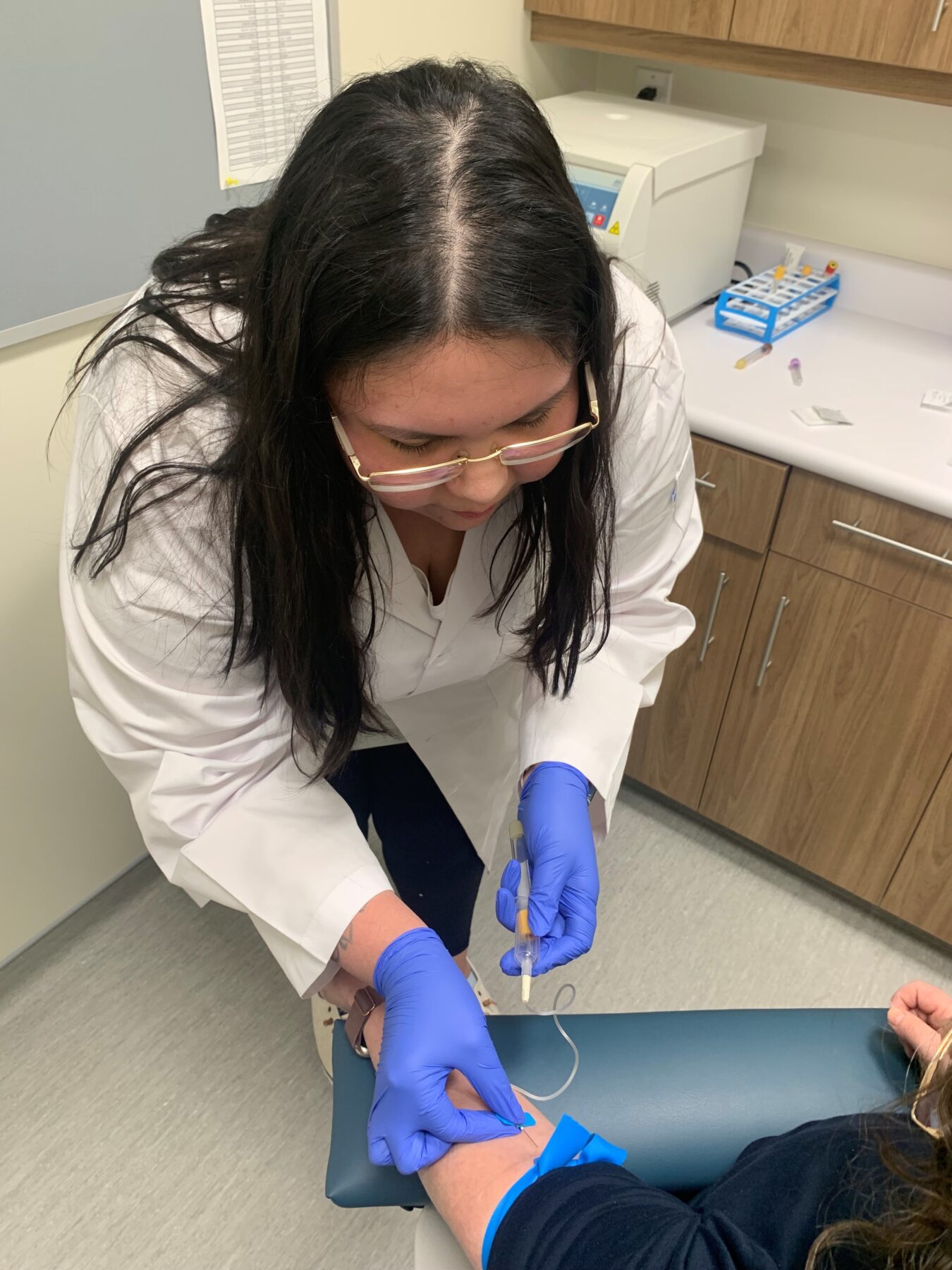
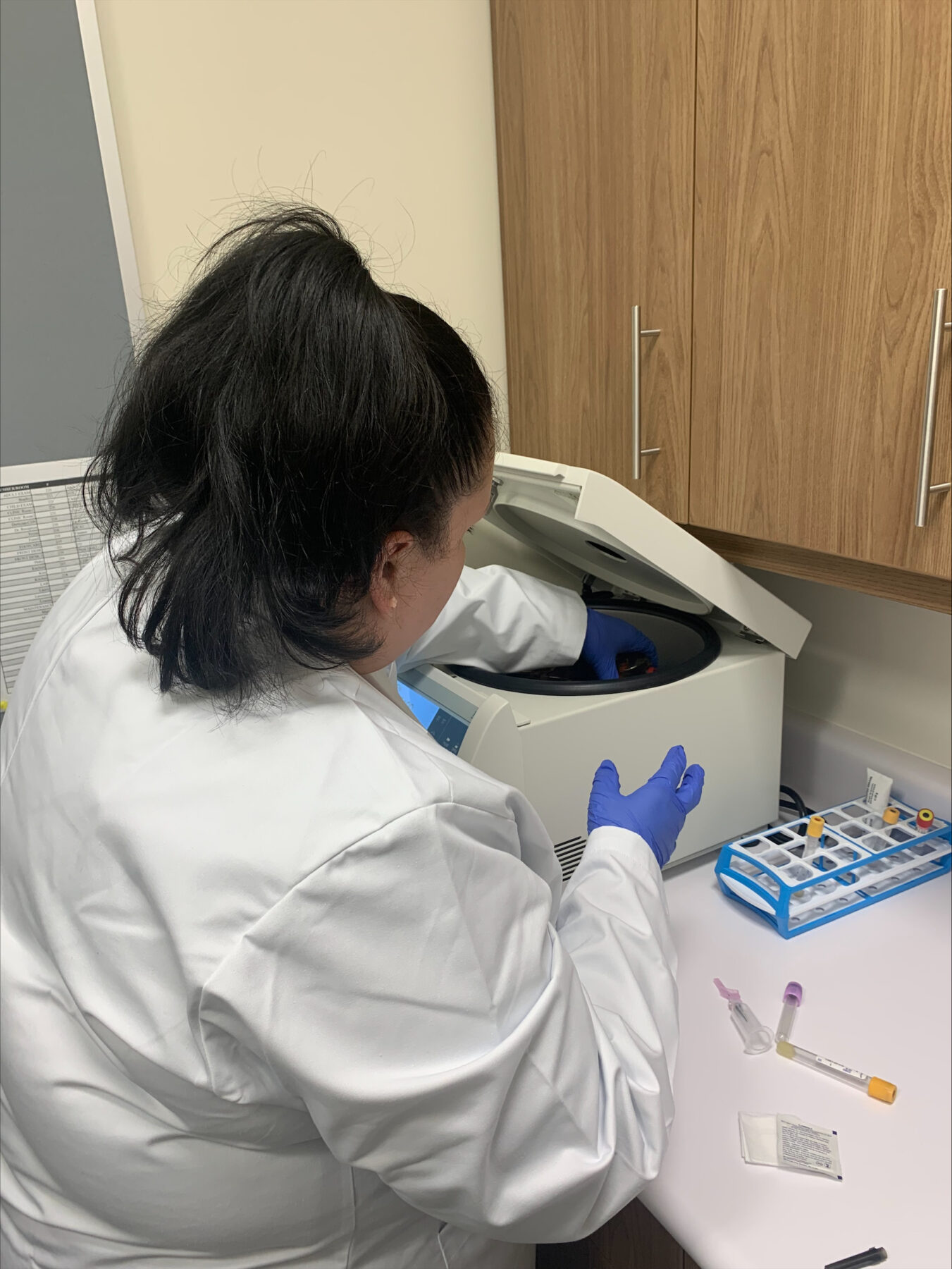
The students are expected to complete the program in early April 2024 and become knowledgeable, competent, and caring healthcare professionals as well as integral members of the community’s Health Centre team.
“SCO is extremely pleased to know Lake Manitoba residents are being trained to deliver lab services in their home Nation. This will create new career opportunities and will also build capacity for the delivery of comprehensive health services within Lake Manitoba,” shared Grand Chief Jerry Daniels in a joint news release with the provincial government.
While infrastructure is essential to independence and prosperity, the lifeblood of any community – the most important thing needed to exist, develop, and be successful – remains its people. The onsite lab in Lake Manitoba First Nation’s stunning new Health Centre has sat empty since it opened a year ago because there were no staff available locally who were qualified to deliver lab services.
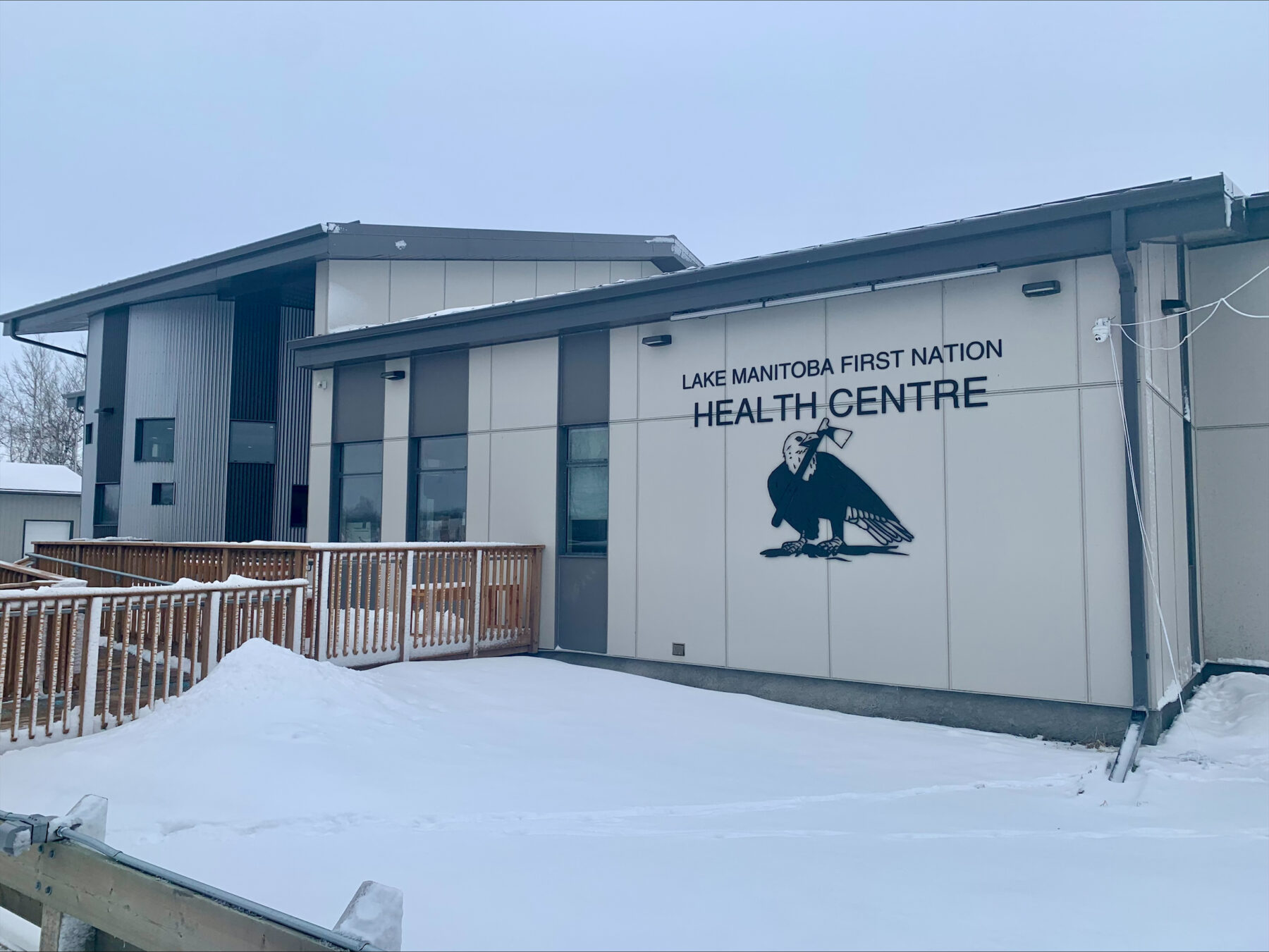
“It is essential we work to build more holistic health services to benefit our members. It is time to close the gap in life expectancy between First Nation citizens and non-First Nation people in Manitoba,” said Chief Cornell McLean of the Lake Manitoba First Nation. “Reducing barriers and having more accessible services in our Nations will help us reach that goal.”
Lake Manitoba First Nation members currently have to travel to Eriksdale (about 38 kilometres away) or Ashern (about 52 kilometres away) for a routine blood sample collection. Having a proficient phlebotomist onsite will lead to quicker test results, more timely medical interventions, and better health outcomes within the community, in addition to the immediate advantages of reducing travel, related costs and stress for individuals.
“Every Manitoban deserves quality care, close to home,” added Manitoba Health, Seniors and Long-Term Care Minister, Uzoma Asagwara in the joint release. “Our goal is to ensure that throughout our province, all Manitobans have access to convenient, timely and reliable lab services. It is particularly important in this case that care is being delivered by citizens of Lake Manitoba First Nation, who will be trained and working in their community.”
The first three participants in the pilot project share a passion for helping those around them and also happen to be working mothers who are balancing full-time jobs and raising their families with up to 25 hours a week of classes and studying, so staying in their community to learn is not a preference, it’s a requirement.
“I read my phlebotomy textbook to my three-year-old until he falls asleep at night and then I watch the recordings of our classes to catch up but I’m not passing up this opportunity,” explained student, Sarah Lavallee. “I’m proud of my commitment to stay and work here, I’m excited to make a difference, and I believe we will inspire others.”
The students are thriving thanks in part to layers of additional support that include resident Elder Mary Maytwayashing; the entire Lake Manitoba First Nation Health Care Team; a mentor from the Interlake Regional Health Authority helping with the lab and equipment; and access to RRC Polytech’s full complement of resources and support services.
Their success represents important first steps toward SCO’s goal of bringing a fuller suite of healthcare services closer to home for the citizens of 34 southern First Nations and will serve as an example of the power of partnership to prompt meaningful change.
“This is one of the many projects that the health transformation team has been working on as SCO continues to develop a southern First Nations health authority,” concluded Karlene Debance, Chief Executive Officer for Health Transformation, SCO. “SCO is pleased to see that this training is underway. We wish the students all the success with the program and with their careers in the healthcare field.”
